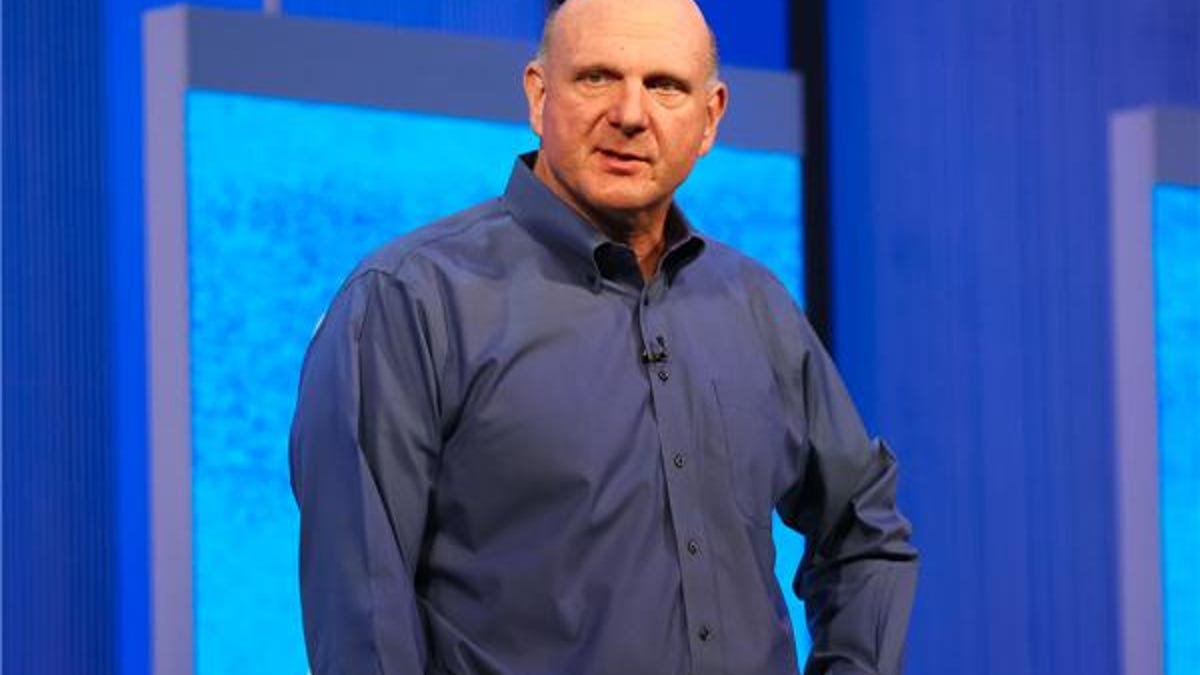Ballmer: Microsoft has 'all its best days ahead.' Oh really?
The reality is that without some miracle, as when Steve Jobs returned to Apple and transformed the company, Microsoft's best days are behind it.

In his retirement memo to employees today, Steve Ballmer said that "Microsoft has all its best days ahead." You would, of course, expect one of the tech industry's biggest cheerleaders to put a super-positive forward spin on his decision to leave the company after 33 years, including 13 as CEO.
The reality is that without some miracle, as when Steve Jobs returned to Apple and transformed the company, Microsoft's best days are behind it.
In the Ballmer era, Microsoft has struggled to make the transition into the mobile and social 21st century. The company was slow to react as consumer technologies and mobile computing took off at the expense of PCs and unwieldy enterprise applications.
The PC business that feeds Windows sales has been steadily slowing. In the second quarter of 2013, worldwide PC shipments dropped nearly 11 percent from the same period last year, according to Gartner.
Ballmer oversaw the success of the Xbox and Windows 7, and the less well received Windows Vista and the new Windows 8. In July, the company had to take a $900 million "inventory adjustment" charge for its Surface RT tablet/laptop hybrid.
In 2007, when Apple's iPhone was introduced, Ballmer said, "There's no chance that the iPhone is going to get any significant market share. No chance." In 2008, Microsoft bought Danger, make of the Sidekick mobile phone, for around $500 million. That didn't solve Microsoft's mobile device strategy. Microsoft is still playing from way behind in the smartphone market.
Ballmer did manage to dodge an attempted acquisition of Yahoo, but Microsoft is still chasing Google for the lucrative search revenue. Microsoft's Bing search has grown from 8.9 percent share of U.S. search in July 2009 to a respectable 17.9 in July 2013, according to ComScore. However, the company's overall online division is still unprofitable.
While Microsoft has continued to earn billions for shareholders, the stock has been mostly flat, as Apple, Google and other rivals are seen to be the future.
In his memo, Ballmer said that he originally planned to retire in the middle of the transition that began with a restructuring of the company around devices and services in July. In deciding to retire, he said that Microsoft needs a "CEO who will be here longer term for this new direction."
The new direction is designed to turn the battleship around so it can last another 30 years. "Going forward, our strategy will focus on creating a family of devices and services for individuals and businesses that empower people around the globe at home, at work and on the go, for the activities they value most," Ballmer wrote in a memo to Microsoft's employees about the reorganization in July. He added that Microsoft has to "focus on completely reinventing experiences like creating or viewing a creative document and what it means to communicate socially at home or in meetings at work."
With 100,000 employees, $74 billion in revenue and a recent track record of less than stellar product introductions, Microsoft has proven that it's challenging to iterate and reinvent user experiences as fast as younger, more nimble competitors. Another Microsoft reorganization isn't going to quickly eliminate internal turf battles, turn on a fire hose of innovation or speed up adoption of Windows 8 or Surface tablets.
Ballmer is saying that better days are ahead for Microsoft without him at the helm. In his memo he said that Microsoft has the "best team in the industry" and the "right technology assets." And in his characteristic fist-pumping rhetoric, he said, "We cannot and will not miss a beat in these transitions."
His assessment might be biased, but Ballmer is right about Microsoft not being able to afford to miss a beat and about the need to step aside now to let someone else lead the transition. Better days might be ahead -- but that's something that may be more likely with an infusion of leadership from the outside.
Several insiders and former Microsoft executives have been mentioned as possible Ballmer replacements. But setting a new course for the next decade will require someone who hasn't been part of the past, an outsider who doesn't have deep ties and conflicting loyalties within the company. Maybe Salesforce.com's Marc Benioff, Facebook's Sheryl Sandberg, eBay's John Donahoe or Amazon's Jeff Bezos are looking for an extraordinary new career challenge.
Bill Gates and the board of directors are going to need a kind of miracle to find the perfect candidate to transform Microsoft.

